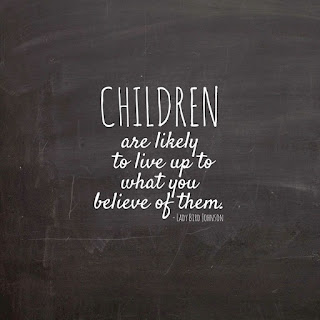Even
though I always love learning, I found school very tedious. I somehow knew that
there was more to learn that the teachers were letting on.
When
it was time to leave I knew that the world was waiting to be explored. I knew
that with a good quality education and training I could have the capacity to
take it on and lead an exciting life while working some cool job to support my
lifestyle.
But
looking back at my school days I don’t feel it prepared me for the complex
world that I was to enter when I turned 18.
Let
me describe it for you!
In
the 1980s it was trendy to try and “mainstream” disabled people into their
local community. So when I got to high school (after attending a local mainstream
primary school) they thought that because I had a disability I could do with “the
extra support”.
But
in reality there was just this building that referred to as the “Resource
Centre” or informally just the “Unit” in this rough comprehensive/secondary
modern school.
I
always found it a little amusing considering there were no resources or support
except 4 walls and a roof in which to shelter and hide from the world and no extra development to ensure that we could work to our capacity and be strong interdependent people.
The
reason why I think that they failed was that they had a real opportunity to
allow us to develop the confidence and skills to fully participate in society,
hold down jobs, have families and participate in society in the same ways as
everyone else.
There
was this real tyranny of low expectations that assumed that someone’s inability
to, for example, walk or see meant that they were unable to be successful in
their studies or work. In my case, it was like my weak left side defined my
entire ability.
 The
system didn’t have very high expectations of us other than we would leave
school then do a spot of life skills training before being on welfare.
The
system didn’t have very high expectations of us other than we would leave
school then do a spot of life skills training before being on welfare.
They
infantilised us and failed to provide an empowering experience that gave us the
skills to be successful in the post-school environment. It was like they
perpetuated a paradigm in which we moulded to be passive, complement and
dependant.
Mike Oliver cites a study of disabled young people where they were described as arriving at college 'with very negative self-image and poor self-esteem. Often they appear to have been conditioned into accepting a devalued social role as sick, pitiful, a burden of charity' (Hutchinson and Tennyson, 1986, pg 33).
This is what it was like.
Mike Oliver cites a study of disabled young people where they were described as arriving at college 'with very negative self-image and poor self-esteem. Often they appear to have been conditioned into accepting a devalued social role as sick, pitiful, a burden of charity' (Hutchinson and Tennyson, 1986, pg 33).
This is what it was like.
The
outside world is often hostile to those who are different and individuals with
disabilities often have to endure an extra disablement of people’s negative
perceptions of us.
So
not only would it have been good to develop the skills and confidence to thrive
within the mainstream community but also to educate the general school
population about being tolerant and being inclusive.
I
guess kids are naturally intolerant and insensitive but with a greater number
of disabled kids at the school it would have been a great opportunity to
educate kids on the value of diversity.
Also,
knowing that bullies at school often (but not always) grow up to be bullies in
the workplace, learning how to handle such people as well as developing
reliance should have been a key part of our education.
Thankfully
the whole establishment has now closed down and hopefully society has moved on to
be more inclusive and to provide disabled kids a more empowering education that
sets them up for the rest of their lives.
I
hope that that there isn’t an automatic assumption that people with
disabilities can’t be successful in education/training and can’t participate in
the mainstream workforce.
List of references
Hutchinson, D., and Tennyson, C. (1986). 'Transition to
Adulthood' (London: Further Education Unit)

No comments:
Post a Comment